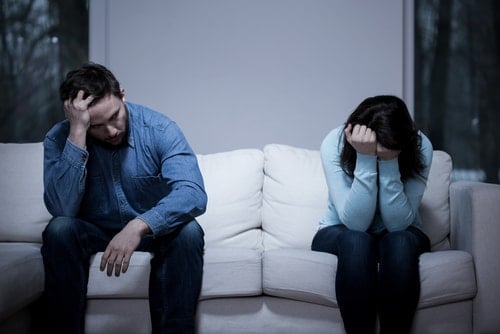As if interpersonal relationships weren’t complex enough, more and more people nowadays find themselves in parasocial relationships with people they don’t personally know. Since we’re exposed to idealized images carefully manufactured to expand a celebrity’s following and win the hearts of their fans, falling into such a relationship is easier than ever.
In the era of social media, with vloggers who share their every move online and intense media coverage of the private lives of celebrities, we’ve become overly attached to our favorite stars. And parasocial relationships have become an increasingly common phenomenon, especially among young people.
If you’d like to get to know more about parasocial attachment and how to get out of this kind of unhealthy relationship, keep reading.
What Counts As A Parasocial Relationship?

A parasocial relationship happens when you feel intense emotions for someone who you don’t personally know, typically a famous person. They used to mostly happen with TV personalities, popular musicians, actors, and sports stars. However, nowadays they’re also common with social media celebrities. They can also occur with fictional characters, such as the characters from your favorite movie or book.
The way you feel in this type of relationship can be very similar to how you’d feel in a real-life relationship. You‘re intensely interested in everything that has to do with the person, feel like you have a deep connection with them, and are fiercely loyal to them. You may fantasize about the person and be jealous or over-protective of them. Some people may even exhibit obsessive and stalking behavior.
What Is A Parasocial Breakup?
Since parasocial relationships are in many ways similar to real-life relationships, you can actually experience a parasocial breakup. For example, this may happen if you’ve fallen for a character on a TV show and the TV show ends or gets canceled.
The fact that you won’t be able to enjoy “the company” of this person any longer may be as painful as a real-life breakup. You may miss them intensely and grieve the end of your time together just like you would with an actual partner.
Are Parasocial Relationships Healthy?
It’s human nature to form bonds with others. Parasocial relationships are a kind of human connection and developing affection for someone who you admire is perfectly understandable. However, the problem is that they can cause a lot of hurt. There are several reasons why:

- They’re one-sided. By default, there’s no reciprocity in a parasocial relationship. One person pines after another, who isn’t even aware of their existence. This longing can cause a lot of pain and frustration.
- They typically involve a high degree of romanticization. Since you don’t personally know the object of your affection, you’re free to fill in the blanks any way you choose. You may feel like nobody compares to this idealized image, which could prevent you from establishing meaningful real-life relationships.
- They often signal a fear of rejection. People who feel strong parasocial affection are sometimes unconsciously protecting themselves from the possibility of rejection. Since the other person doesn’t actually know you, you’re safe from being turned down. However, this can also be stopping you from working through this fear.
- They may intensify your sense of isolation: This type of attachment sometimes happens to people who are lonely and have low self-esteem. Instead of trying to solve these problems, they may withdraw even further, not giving themselves a chance to interact with people in real life.
Can Parasocial Relationships Benefit Real Life Relationships?
Generally, parasocial relationships are a poor stand-in for a reciprocated, real-life relationship. They aren’t a substitute for a meaningful connection with an actual partner who can love you back.
However, they do have certain benefits:
- They may be a learning experience: They could shed light on what you look for in a partner or what you lack in your current relationship. They can also uncover your attachment patterns, help you understand yourself better, and put you on a path of personal growth.
- They may make it easier to get to know others: Many people who feel intense attraction to a celebrity are part of a fandom. This is a great way for them to meet like-minded people, enjoy a sense of commonality, and form lasting friendships over a shared interest.
- They may improve your self-esteem: This kind of relationship can be a great source of motivation for someone who lacks confidence. They may perceive the celebrity as a role model and acquire the traits for which they admire them. For example, a person may continue pursuing music as a hobby because they’re inspired by their favorite musician.
- They may provide comfort: These relationships can provide a kind of escapism from everyday situations, especially during certain tumultuous and transitional periods of a person’s life, like adolescence.
How Do I Get Out Of A Parasocial Relationship?
Getting over someone is hard, even if it’s a celebrity or a fictional character, and you need to give yourself time to process and recover from it. Here are some ways to do it:
- Be gentle on yourself: Don’t beat yourself up about having these feelings.
- Reflect on your emotions: Consider what you can learn from the experience.
- Focus on self-care: Find a source of comfort and an outlet for your grief.
- Connect to the people in your life: Seek support from loved ones.
- Identify the root cause of such a relationship. Try to identify what caused you to form a parasocial relationship. This may help you learn more about yourself, previous experiences, and possible past wounds. You can also reach out to an advocate to help you work this out.
Where Do I Find A Private Reconnection Retreat For Couples?

If you have difficulty letting go of a parasocial relationship or establishing meaningful bonds with people in your life, PIVOT can offer the guidance you need. Our individual coaching offers an excellent chance for personal growth whether you’re struggling to say no in a relationship or have another issue you’d like to work through.Our approachable relationship advocates help couples understand their relationship and apply this knowledge to further it. For example, you may learn how to talk to each other about topics like sex and intimacy more effectively. Get in touch with us to join our helpful coaching sessions!


















